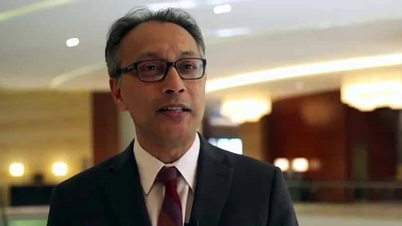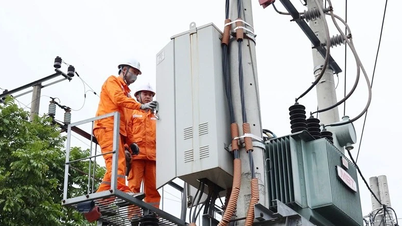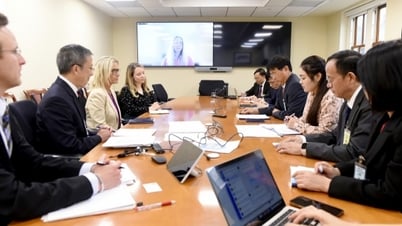Venture capital funds that invest in startups with sustainable development solutions may find it difficult to raise capital after new US President Donald Trump withdrew the US from the Paris Agreement.
On the evening of January 20 (Washington DC time), new US President Donald Trump continued the first day of his second term in the White House. The highlight of the program was that Mr. Trump publicly signed about 10 executive documents in many different fields. A notable document was about immediately withdrawing the US from the Paris Agreement on climate change. Many difficulties in raising capital Entrepreneurs, start-ups, climate activists and the sustainable development community in general are concerned about the US withdrawal from the Paris Agreement. A representative of Earth Venture Capital, a venture capital fund focusing on technology solutions to combat climate change, shared with Tuoi Tre Online that President Donald Trump's decision to withdraw the US from the Paris Agreement will affect the climate technology industry. In terms of technology, President Donald Trump has promised to withdraw electric vehicle (EV) subsidies, cut the Inflation Reduction Act (IRA), allow oil drilling... All of these actions have a negative impact on deep technology in the climate industry. "In his inaugural address last night, President Trump reiterated these plans, as promised during his previous campaigns, and suggested that these measures would be implemented through executive orders," said Earth Venture Capital. Climate investors say the prospect of a second term for President Donald Trump is creating a wave of uncertainty for the climate tech sector. Known for slogans like "drilling for oil" and calling climate issues a "hoax," Trump's return to the White House could reshape clean energy funding globally, forcing investors, countries, and startups to adapt. Impact of the energy transition The impact is not limited to the United States, but will also affect global geopolitics and climate tech innovation, especially in Southeast Asia. Southeast Asia’s clean energy initiatives could face a funding challenge as President Trump makes good on his pledge to cut climate spending and focus on domestic industries. The United States is a key partner in the Just Energy Transition Partnership (JETP) programs with Indonesia and Vietnam, which aim to help those countries transition away from coal and adopt cleaner energy sources. The United States has committed $2 billion of the $20 billion promised by wealthy nations and financial institutions to Indonesia and $1 billion of the $15.5 billion to Vietnam. A complete withdrawal would put JETP programs in financial trouble at a time when funding is already slow to come. But an immediate shock is unlikely. The U.S. government is not a major direct source of funding for Southeast Asia’s energy transition. Southeast Asian economies are facing both the impacts of climate change and geopolitical shifts, which present both challenges and opportunities. Without strong US engagement, these countries will have fewer partners to access cutting-edge climate technology, which could boost regional momentum and attract investment from other global partners. Southeast Asia currently relies on the Middle East for 60% of its oil needs, making the region vulnerable to geopolitical shocks such as the Russia-Ukraine conflict. In 2022, fossil fuel subsidies reached a record $105 billion, and without changes, annual oil import costs could rise to $200 billion by 2050. Earth Venture Capital said that the coming period will be a “test of the waters” and an opportunity for funds to filter and invest in quality startups that solve real problems and have the potential to change the industry. “This is the time for private capital to replace public capital and subsidies, similar to the scenario in President Trump’s first term,” said Earth Venture Capital.
Source: https://tuoitre.vn/hieu-ung-donald-trump-quy-dau-tu-cong-nghe-khi-hau-co-the-kho-huy-dong-von-20250121111102857.htm| After years of negotiations, the 2015 Paris Agreement committed virtually every country on the planet, regardless of size, wealth or pollution, to set increasingly aggressive targets to cut carbon emissions. The goal: to keep the temperature increase since pre-industrial times “well below” 2 degrees Celsius and ideally no higher than 1.5 degrees Celsius. Without U.S. leadership, the world would fall even further short of the Paris Agreement’s goal of limiting global warming to 1.5 degrees Celsius, a threshold that would accelerate climate damage. U.S. leadership is critical to mobilizing climate finance, accelerating the clean energy transition and ensuring equitable implementation of global climate goals. |






![[Photo] Prime Minister Pham Minh Chinh chairs conference on anti-smuggling, trade fraud, and counterfeit goods](https://vphoto.vietnam.vn/thumb/1200x675/vietnam/resource/IMAGE/2025/5/14/6cd67667e99e4248b7d4f587fd21e37c)



























































































Comment (0)